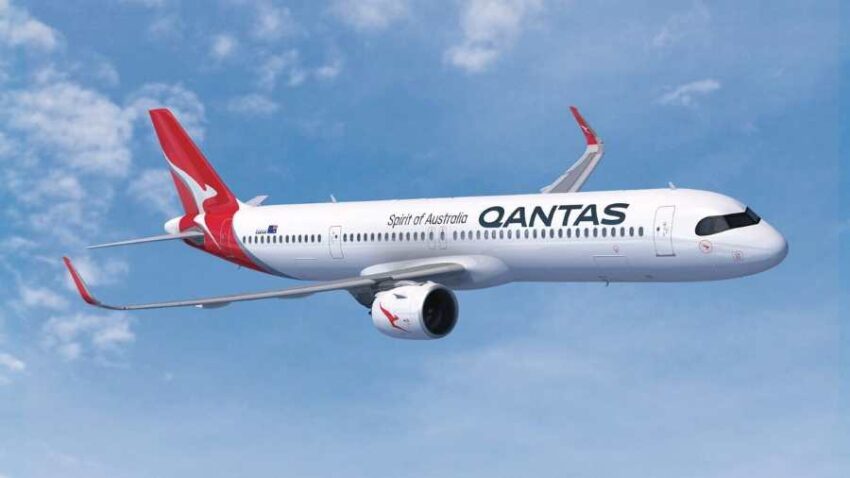- by foxnews
- 24 Nov 2024
Middle East conflict causing ‘chaos' in the aviation industry? What new updates you need to know?
Airlines across the world are rerouting and cancelling services due to conflict in the Middle East what has been described as the biggest disruption to air travel since 9/11.
- by travelandtourworld
- 25 Aug 2024
- in travel

Airlines across the world are rerouting and cancelling services due to conflict in the Middle East what has been described as the biggest disruption to air travel since 9/11.
Tensions escalated after Iran's drone and missile strike on Israel on April 13.
This includes budget airline easyJet cancelling all flights to Israel until at least October 27.
Luton-based easyJet had previously suspended flights until April 21, but has now extended the ban to cover the entire summer season.
easyJet
Lufthansa
German airline Lufthansa has suspended regular flights to and from Tel Aviv, Erbil (Iraq) and Amman (Jordan) up to and including April 16.
Flights to Beirut (Lebanon) and Tehran (Iran) will remain suspended until at least April 18, with all Iranian airspace also being unused in that time.
The decision made by Lufthansa Group also extends to its other subsidiary airlines: Eurowings, Swiss International Air Lines, Austrian Airlines and Brussels Airlines.
Flight disruptions related to Iran's attack on Israel are significant and are changing by the hour.
Lots of airlines have been cancelling flights to and from both Israel and Iran, but these are short-term measures and are not blanket measures across all airlines.
Therefore, the best advice for travellers both in that region and any travellers flying over the region is to check the latest with their airlines, and airports, especially for those flying in the next day or two.
For those that are able to rearrange travel easily, it could be advisable to delay travel to try and avoid the disruptions and the knock-on effects of the disruption happening right now, which could take some days or weeks to fully resolve.
Most airlines cancelling flights are offering flexible rebooking options, or free cancellation, or in some cases rebooking on different airlines.
You should contact your airline now if your flight is in the coming days, and ask what your available options are.
For those wanting a real time view on where aircraft are flying, the FlightRadar24 website is a helpful tool to see exactly where aircraft are on the map, what airspace might be open or closed, and which airlines are flying where.
KLM
Dutch Airline KLM, sister companies with Air France, has restarted flights to and from Tel Aviv from April 16.
As a precaution following Iran's strike, the airline had stopped flying over Israeli and Iranian air space.
WizzAir
Ultra-low-cost airline WizzAir has also resumed flights to and from Israel as of April 16 after three days of cancellations.
The Hungarian-headquartered company is offering flights to Tel Aviv from both Gatwick and Luton.
Finnair
Finnair has suspended flights over Iranian airspace until further notice.
SASScandinavian Airlines (SAS) has rerouted flights between Copenhagen and Bangkok, which will result in slightly elongated flight times.
This is because the route passes partially over the region of concern.
Qantas Airways
Australian airline Qantas is another which has had to reroute flights. Their route between Perth and London has been affected.
Qantas said no flights between Perth, the capital of Western Australia state, and London had been paused or cancelled, but that flights on the route were operating on the adjusted flight path via Singapore.
The Sydney-based airline's other flights to and from London remained unchanged as they take different flight paths.
Air India
Air India has decided to temporarily stop flights to and from Israel due to the rising tensions.
This will pause the airline's weekly flights between New Delhi and Tel Aviv.
Emirates Airlines
Major Middle East airlines, including Emirates Airlines on April 15 would resume operation in the region after cancelling or rerouting some flights.
This includes routes in and out of Jordan, Lebanon and Iraq.
Qatar Airways
Qatar Airways resumed some routes, including services to Amman, Beirut and Baghdad, on April 14.
The following day, they also reopened their regular flights in Iran.
Impact on Global Aviation
The suspension of flights and implementation of safety measures have had a significant impact on the global aviation industry.
Airlines have experienced financial losses due to canceled bookings and reduced passenger demand.
Additionally, the disruption to travel has affected tourism, trade, and economic activity worldwide.
Stay Updated with Official Airline Announcements
It's essential for travelers to stay informed about the latest updates from their respective airlines.
The best way to do this is to visit the official airline websites or subscribe to their email alerts. By staying up-to-date, passengers can make informed decisions about their travel plans and minimize disruptions.
The Road to Recovery
As tensions ease and security conditions improve, airlines are expected to gradually resume normal operations.
However, the recovery process may take time, and it's likely that there will be ongoing adjustments to flight schedules and routes in the coming months.
Beyond the Headlines: A Deeper Dive
While the headlines have focused on the major airlines, many smaller regional carriers have also been affected by the geopolitical crisis.
These airlines may face even greater challenges due to limited resources and reduced passenger demand.
Furthermore, the disruption to global travel has had a ripple effect on other industries, such as hospitality, tourism, and the broader economy.
Businesses that rely on international travel have experienced significant losses, and many are struggling to stay afloat.
The Future of Air Travel
The geopolitical crisis has highlighted the fragility of the global aviation industry and the need for greater resilience and adaptability.
As the world continues to evolve, airlines will need to be prepared to respond to future challenges, whether they are related to security, economic conditions, or environmental factors.
Safety and security of air travel
The global aviation industry has faced unprecedented challenges in recent times due to geopolitical tensions.
Airlines have responded by implementing safety measures and adjusting flight schedules to protect passengers and crew.
While the situation remains fluid, the industry is resilient and committed to ensuring the safety and security of air travel.
- by foxnews
- descember 09, 2016
Italy expected to draw travelers by the millions as Pope Francis kicks off Holy Year
The 2025 Jubilee will bring tourists to the Vatican, Rome and Italy to celebrate the Catholic tradition of patrons asking for forgiveness of sins. Hope will be a central theme.
read more




